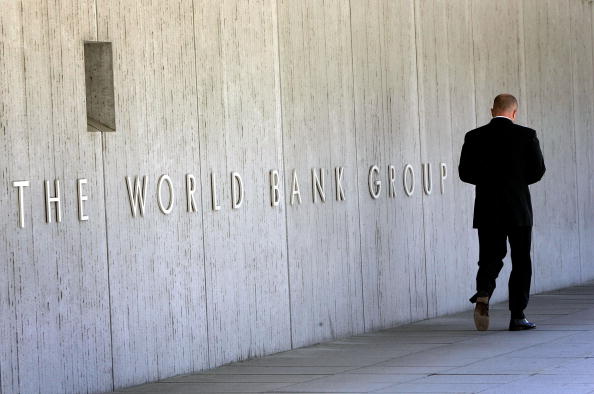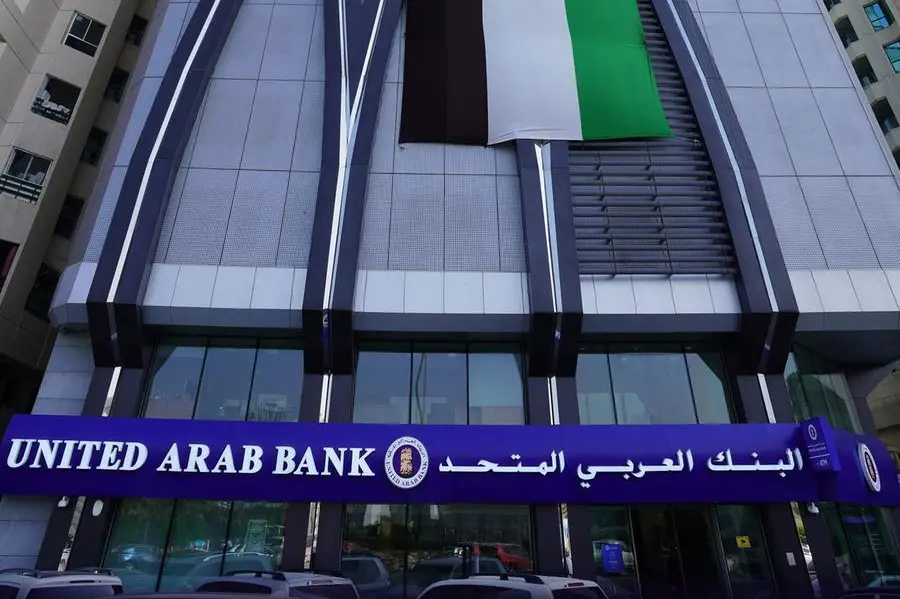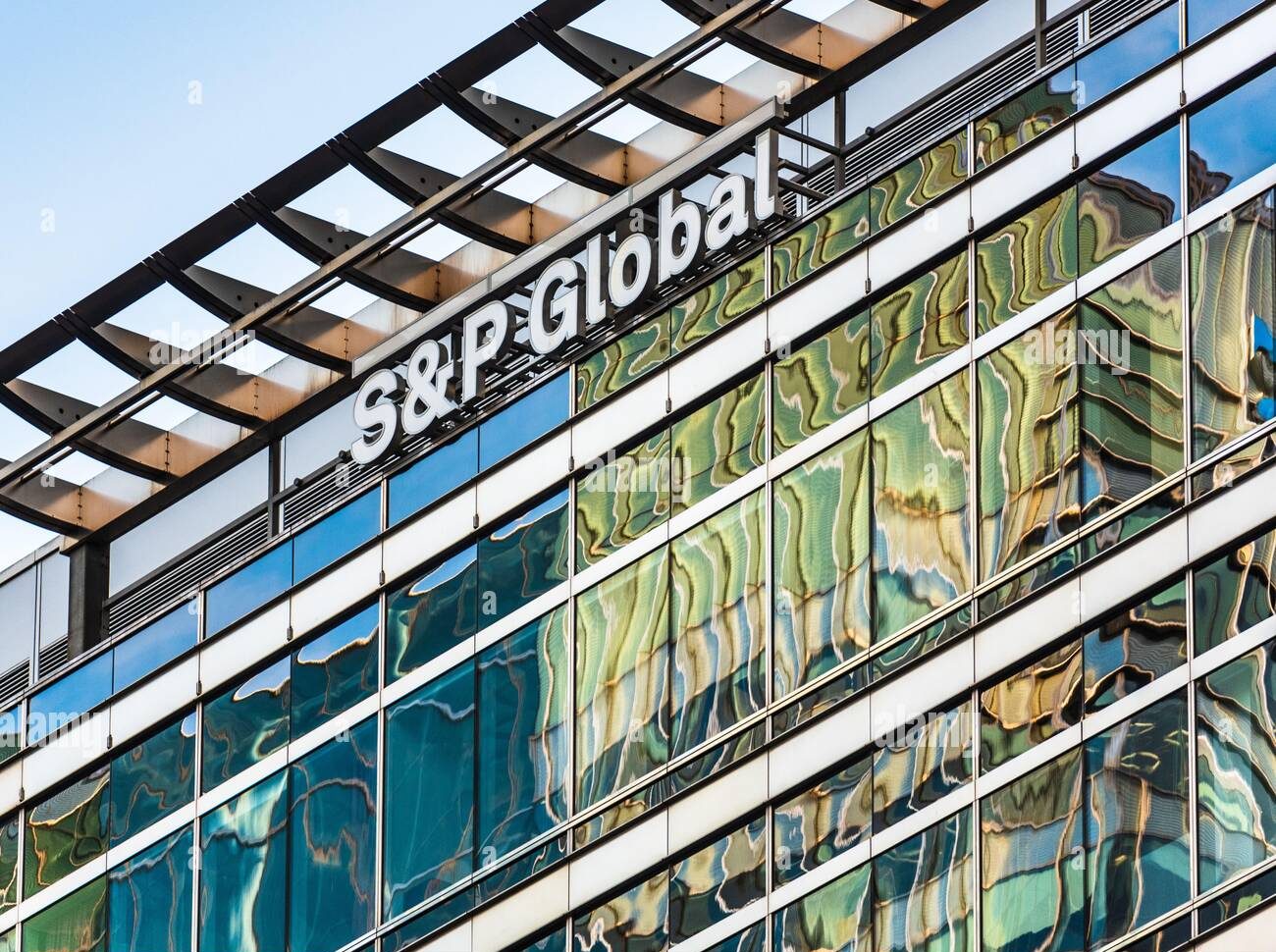World Bank Warns of Lost Decade for Global Economy
Lender sees demographics, war and pandemic aftereffects holding back growth
Over the past year, governments around the world have announced tax breaks, subsidies and new laws in a bid to accelerate investment, combat climate change and expand their workforces.
That might not be enough.
The World Bank is warning of a “lost decade” ahead for global growth, as the war in Ukraine, the Covid-19 pandemic and high inflation compound existing structural challenges.
The Washington, D.C.-based international lender says that “it will take a herculean collective policy effort to restore growth in the next decade to the average of the previous one.” Three main factors are behind the reversal in economic progress: an ageing workforce, weakening investment and slowing productivity.
“Across the world, a structural growth slowdown is under way: At current trends, the global potential growth rate—the maximum rate at which an economy can grow without igniting inflation—is expected to fall to a three-decade low over the remainder of the 2020s,” the World Bank said.
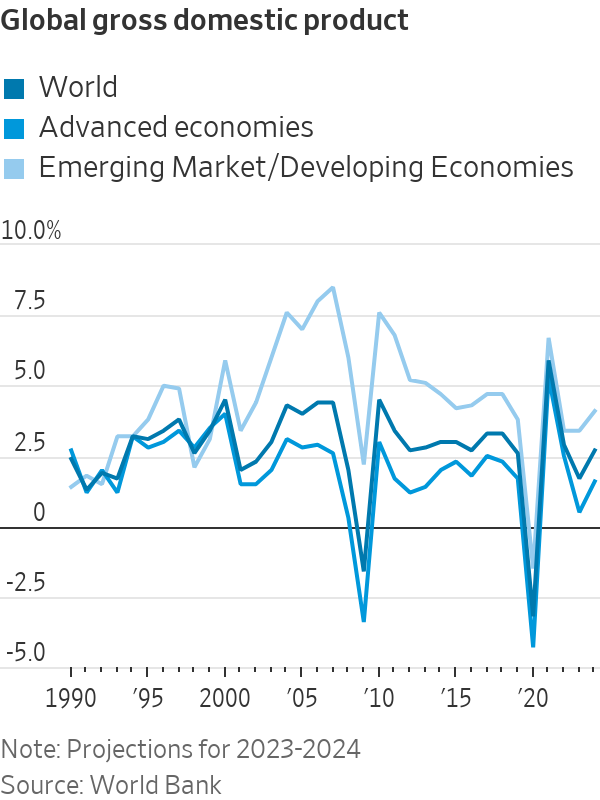
Potential growth was 3.5% in the decade from 2000 to 2010. It dropped to 2.6% a year on average from 2011 to 2021, and will shrink further to 2.2% a year from 2022 to 2030, the bank said. About half of the slowdown is attributable to demographic factors.
The latest alarm bells from the World Bank about the global economy come in the wake of the U.S.’s passing the Inflation Reduction Act, which includes hundreds of billions in incentives and funding for clean energy, as well as a law to ratchet up investments in semiconductors. In response, the European Union is relaxing its rules on government tax breaks and other benefits for clean-tech companies.
Meantime, major economies are trying to boost their workforce numbers, often in the face of steep resistance. In France, protesters responded violently to President Emmanuel Macron’s overhaul of the country’s pension system, while China’s shrinking population has prompted local governments there to offer cash rewards and longer maternity leaves to boost births.
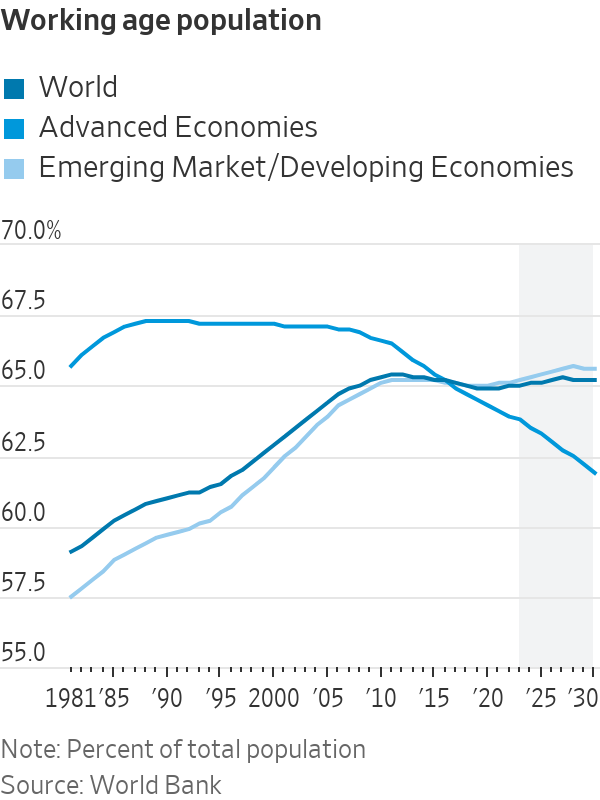
These efforts so far might be too little, too late. Weakness in growth could be even more pronounced if financial crises erupt in major economies and trigger a global recession, the World Bank report cautions. The warning comes just weeks after the collapse of Silicon Valley Bank sparked turmoil in the U.S. and European banking sectors.
Questions surrounding global growth prospects will be in the air in Washington, D.C., alongside the blooming cherry blossoms at the spring meetings of the International Monetary Fund and World Bank from April 10 to 16.
Policy makers and central-bank officials will join economists from around the world to discuss topics including inflation, supply chains, global trade fragmentation, artificial intelligence and human capital.
Earlier this year, the World Bank sharply lowered its short-term growth forecast for the global economy, citing persistently high inflation that has elevated the risk for a worldwide recession. It expects global growth to slow to 1.7% in 2023. Other organisations, such as the International Monetary Fund and the Peterson Institute for International Economics, a Washington-based think tank, expect global GDP growth to expand a more robust 2.9% in 2023.
This isn’t the first time the World Bank has warned of a lost decade. In 2021, the lender said the Covid-19 pandemic raised the prospect owing to lower trade and investment caused by uncertainty over the pandemic. It issued similar warnings after the 2008 financial crisis. Global growth from 2009 to 2018 averaged 2.8% a year, compared with 3.5% in the prior decade.
The World Bank identifies a number of challenges conspiring to push down global growth: weak investment, slow productivity growth, restrictive trade measures such as tariffs and the continuing negative effects—such as learning losses from school closures—because of the pandemic.
It said pro-growth policies would help. Measures to boost labor-force participation among discouraged workers and women can help reverse the negative trend in labor force growth from an older population and lower birthrates, according to the World Bank.
Some view the World Bank’s projection for a lost decade as too pessimistic. Harvard University economist Karen Dynan said that ageing populations in nearly every part of the world will be a drag on global growth, but she was more optimistic on raising productivity—output per worker.
“I expect, outside the demographic effects, output per person to look a lot like it did before the pandemic,” she said.
“The World Bank is right to draw concern to the possibility of a lost decade in sub-Saharan Africa, in Central America, in South Asia—an awful lot of human beings are at risk or are facing very grim situations,” said Adam Posen, president of the Peterson Institute for International Economics.
“But from a global GDP outlook, or even a global population outlook, most of the major emerging markets along with most of the Group of 20 essentially are doing pretty well,” Mr. Posen said. He pointed to economic resilience in Europe and emerging markets in recent years, even as the Federal Reserve has sharply raised interest rates.
 Copyright 2020, Dow Jones & Company, Inc. All Rights Reserved Worldwide. LEARN MORE
Copyright 2020, Dow Jones & Company, Inc. All Rights Reserved Worldwide. LEARN MORE
Chris Dixon, a partner who led the charge, says he has a ‘very long-term horizon’
Americans now think they need at least $1.25 million for retirement, a 20% increase from a year ago, according to a survey by Northwestern Mutual
Total income was higher by 10% year-on-year (YoY) at AED 300 million in the six-month period
United Arab Bank PJSC (UAB or “the Bank”) has announced its financial results for the six months ended 30th June 2024. UAB reported a net profit before tax of AED 152 million for H1 2024, a 26% increase compared to AED 121 million for H1 2023. The net profit after tax for H1 2024 stood at AED 139 million, up 15% from AED 121 million in the same period last year. Earnings per share rose to AED 0.07 in H1 2024 from AED 0.06 in H1 2023.
Total income increased by 10% year-on-year to AED 300 million for H1 2024, compared to AED 273 million for H1 2023, driven by a 26% increase in net interest income. The Bank’s capital position remains strong with a CET1 ratio of 13% and a total capital adequacy ratio (CAR) of 18%.
UAB‘s liquidity profile is robust, with advances to stable resources ratio of 75% and an eligible liquid asset ratio of 19%, both comfortably above regulatory thresholds. The Bank’s credit ratings were affirmed by Fitch and Moody’s at BBB+/Ba1, with stable and positive outlooks respectively.
UAB’s performance in the first half of 2024 demonstrates significant growth in total assets, increasing by 12% compared to December 2023, and reflects a strategic focus on quality and farsighted risk management. These results indicate that the Bank is well-positioned to continue its growth trajectory.
Commenting on the Bank’s performance, H.H. Sheikh Mohammed bin Faisal bin Sultan Al Qassimi, Chairman of the Board of Directors of United Arab Bank, said: “UAB’s strong performance in the first half of 2024 reflects the successful implementation of our growth strategy and reinforces our commitment to delivering sustainable value to our shareholders. We are confident that our prudent business model shall continue to deliver a solid performance and deal with the opportunities and challenges that will present themselves.”
He added: “As we move ahead into the second half of the year, we remain committed to enhancing our customers’ banking experience and contributing to the growth and prosperity of the UAE’s economy.
Shirish Bhide, Chief Executive Officer of United Arab Bank, commented: Our customer-centric approach and sustainable growth model has led to a 15% increase in net profit and a 12% growth in total assets. Our positive performance is a testament to the successful execution of our strategic priorities and clear evidence of the success of the many initiatives that have been implemented at the Bank. Going forward, we will continue investing in our growth strategy and digital capabilities, while equally focusing on developing innovative products and services that meet our customers aspirations whilst upholding the highest standards of compliance and internal controls.”
Chris Dixon, a partner who led the charge, says he has a ‘very long-term horizon’
Americans now think they need at least $1.25 million for retirement, a 20% increase from a year ago, according to a survey by Northwestern Mutual









